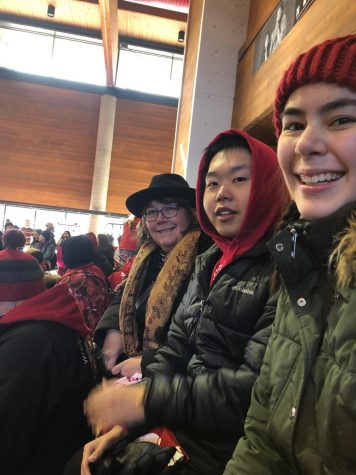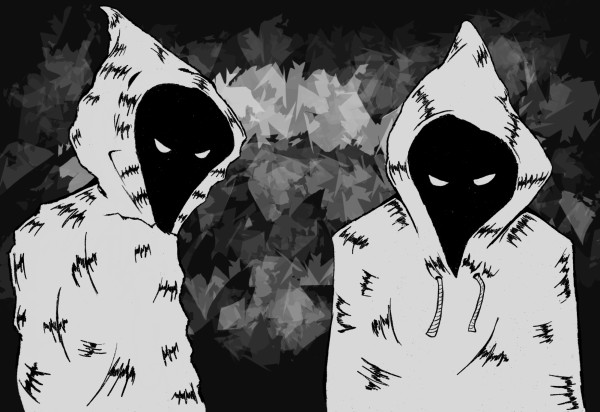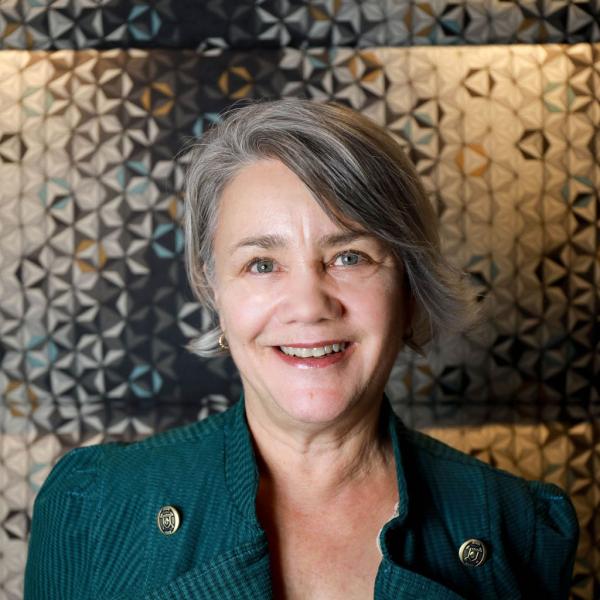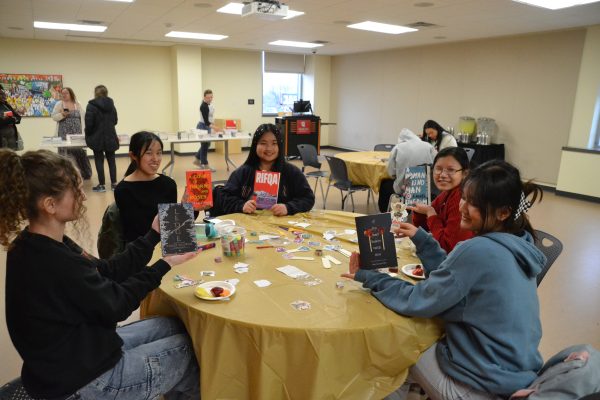March to end crime and sexual violence
To honor and remember the lives of indigenous people, Hamline students participated in the Minneapolis Missing and Murdered Indigenous Peoples March on Feb. 14.
COURTESY OF NANCY VICTORIN-VANGERUD
From left, Hamline students Fances Verner (junior), Emily Mckenzie (first-year) and Plykue Thao (senior) stand outside the Minneapolis American Indian Center. They and other marchers donned red in support of missing and murdered indigenous women (MMIW).
February 26, 2020
In zero-degree weather on Feb. 14, hundreds of individuals gathered in front of the Minneapolis American Indian Center to honor missing and murdered indigenous women. Among the crowd, multiple Hamline students marched to pay tribute.
Various campus organizations promoted the Minneapolis Missing and Murdered Indigenous Peoples March including the Women’s Resource Center (WRC), the Hamline Indigenous People’s Society (HIPS) and the Wesley Center interfaith group HU Better Together. During the march, Hamline students meet with members of the Augsburg Indigenous Student Association. This collaboration in activism is an important part of HIPS’ values.
“Our mission is to network and build a great relationship with other orgs on campus and [indigenous peoples] orgs at other schools,” said senior and HIPS secretary Plykue Thao.
Thao gained knowledge on the issue during a trip to Washington D.C. in the fall of 2019 to meet with congresswoman Betty McCollum. McCollum runs a task force designed to end crime and sexual violence on reservations.
Thao explained it is difficult to charge non-native people of crimes on reservations as the land is outside the control of the federal government. According to the Urban Indian Health Insitute, there were 5,712 known incidents of murder or violence against indigenous women in 2016. Only 116 cases of these cases were logged into the Department of Justice database.
“It can be hard to really wrap your head around what those numbers actually mean, the level of emotional devastation that’s behind those statistics,” said Frances Verner, a junior and the leader of HU Better Together.
The march began with an opening blessing and welcome song at the Minneapolis American Indian Center. Local politicians and indigenous activists welcomed and educated the crowd before marching the Minneapolis streets.
One such speaker was Lt. Gov. Peggy Flanagan, a member of the White Earth Band of Ojibwe and the second Native American woman in the U.S. to be elected to a statewide executive office. During this welcome, attendees were asked to say the names of missing or murdered indigenous people.
“It took the crowd a second to find the ability to speak. It was very profound because so many names were listed,” Thao said.

From left, Chaplain Nancy Victorin-Vangerud, senior Plykue Thao and first-year Emily Mckenzie attend the opening blessing and welcome song at the Minneapolis American Indian Center before marching to honor the indigenous women and people who have been victims of violence.
After the welcome, marchers took to the streets despite the freezing temperatures outside, led by native youth and elders. Marchers were asked to wear red, the color associated with the MMIW movement, and many wore shirts or held signs in remembrance of friends and family members. Others displayed a red handprint painted over the mouth to represent the women and indigenous people who have been silenced.
“I was shocked about how many people were there,” said HIPS president first-year Emily Mckenzie. “Everyone was so supportive and there for each other.”
It was a very inspiring event for Nancy Victorin-Vangerud, Chaplain and director of the Wesley Center, who attended the march with Hamline students. She described the misconception that native people are people of the past. Events like the MMIW march prove that this is very untrue.
“I felt like I was a part of a protest where indigenous women were central, not tokenized,” Victorin-Vangerud said. “Today [there is a] transmission of the resilience and dignity of indigenous women’s power; culturally, spiritually and politically.”
HIPS continues to educate the Hamline community on indigenous issues. The group meets weekly from 4:15 p.m. to 5:15 p.m. on Tuesdays in GLC 101 E.






